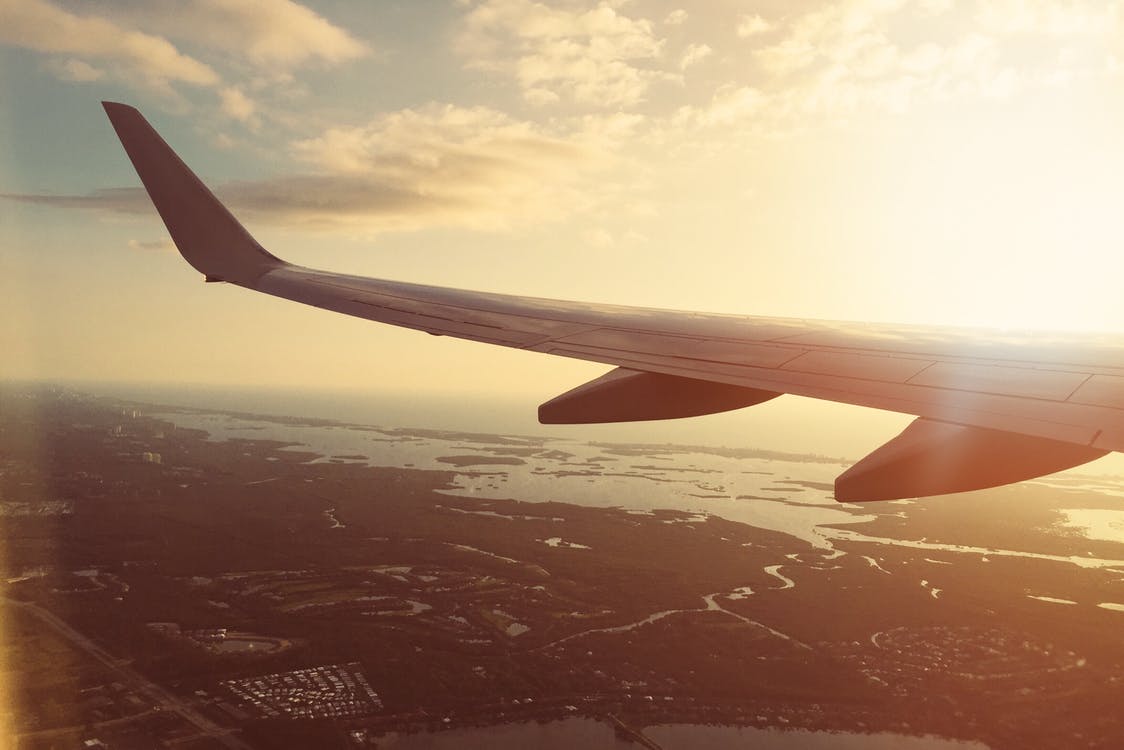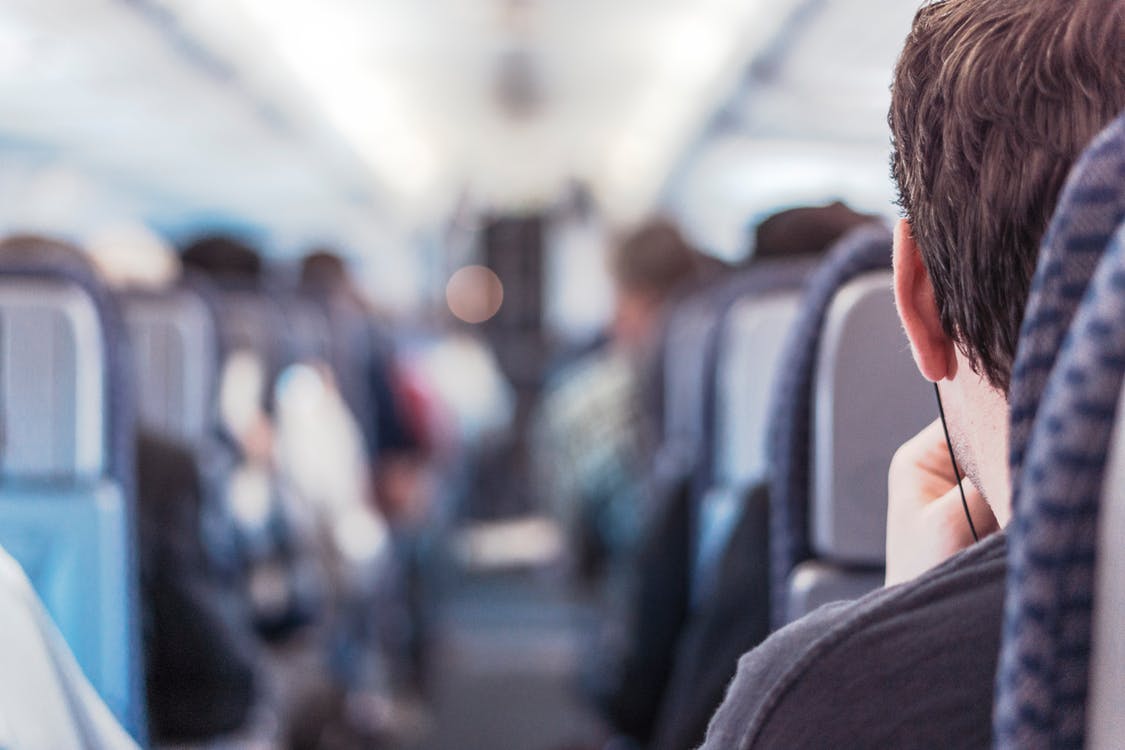For expats, there are often occasions where it becomes necessary to fly long distances – to go home (especially during this festive period) or on a business trip, for instance. For some, these long-haul flights may seem like simple routine, even as others struggle to make it through.
No matter your level of jet-setting experience, there are many variables that can affect your well-being on a long-haul flight. Passengers should always keep in mind the complexities of maintaining good in-flight health.
According to our in-house doctor, Dr Lalande, three main factors can affect bodily functions when on a long-haul flight: changes in oxygen concentration, change in cabin air pressure, and long periods of immobility while seated. While most of these issues normally lead to a little discomfort, in some cases the consequences can be more serious. When the issues remain minor, certain measures can be taken to alleviate the resulting symptoms.
So, what does happen to your body when you’re sat binging on in-flight entertainment system and having possibly one of the 'uncomfiest sleeps of your existence?
Change in oxygen levels
During a long-haul flight, air pressure is controlled at a height equivalent of 2,500 metres. This leads to lower levels of oxygen absorption by the body. In most cases, passengers will not feel this change in oxygen levels. However, some may develop minor symptoms like altitude sickness, headaches, or difficulty sleeping (not just because you’re fighting with your travel pillow). Some of these effects can be dealt with easily using the on-board medical kit.
Those with pre-existing blood disorders or any respiratory or cardiac condition, however, may experience more serious symptoms such as accelerated heart rate, shortness of breath, or even decreased consciousness. It is important to seek medical help when dealing with these issues.

Change in air pressure
When an aeroplane ascends or descends, air pressure is affected. This cabin pressure adjustment leads to quite significant changes in the gas volumes in the cavities of the human body. Most people who have flown before would have experienced the effects of this phenomenon in the form of popping ears. However, in some cases the effects can be more severe.
Acute traumatic inflammation of the ear, also known as otic barotrauma, may occur due to the change in pressure. Symptoms can include pain, dizziness, or even temporary hearing loss.
These conditions can be serious, but they are also preventable, and there are measures passengers should take to avoid this situation. Simple methods anyone can perform include swallowing, chewing, or the valsalva manoeuvre (brief vigorous expiration against closed nose and mouth) of clearing blocked passageways in the body. Decongestants and nasal drops may also mitigate the issue.
It must be noted, however, that those with upper respiratory tract infections should avoid taking flights altogether due to the risk of otic barotrauma.

Risk of long-term immobility
Long periods of immobility during long haul flights slow down blood flow in the legs and may trigger the formation of blood clots in the veins, also known as deep vein thrombosis (DVT). Usually the blood clots will break down by themselves; however, there is a possibility that they may remain and lead to a pulmonary embolism (PE).
In most cases, due to the small sizes of clots, the PE will be minor. Symptoms include discomfort in the chest, bloody coughs, and sweating and agitation. Dr Lalande recommends walking around the aircraft every couple of hours, as a preventative measure. It’s also wise to wear loose fitting clothing with compression socks and avoid drinking the free tipple of alcohol you’re offered. Some airlines also use their inflight magazine to recommend exercises you can do onboard.
Although the majority of PE cases will result in minor symptoms, if pain suddenly occurs in a swollen leg, the passenger should lie down to prevent the clot from detaching until medical help arrives.

Importance of staying hydrated
Hydration is very important on long-haul flights, as plane cabins are very dry. With a humidity level below 20%, the conditions are equivalent to a desert.
Remaining hydrated will prevent your mucus membranes and throat from drying out, making you less prone to bacteria, viruses and illnesses. Being hydrated can also prevent uncomfortable symptoms, ranging from scratchy eyes to sore throats and DVT from occurring.
If possible, it is a good idea to bring your own water on the flight. After you pass through security, you’ll have the opportunity to purchase water bottles or even refill your own. Water will be your best defence against any lurgies on the plane. Avoiding alcohol, tea and coffee – which are diuretics – will also keep your body hydrated as you travel.

Jet lag
When travelling long distances and skipping across time zones, jet lag may occur. Most of us associate jet lag with fatigue and a ruined sleep schedule. However, jet lag can also have more serious side effects like diarrhoea, constipation and nausea. The more efficiently you can shake jet lag, the quicker you’ll feel better.
However, if these symptoms linger, you may need to visit the hospital. For this and many other reasons, it is always recommended to have comprehensive health insurance, ensuring you are covered no matter where you are.
Many expats may believe jet lag is an inevitable part of travel; however, there are ways to mitigate or even prevent the symptoms. Those concerned about jet lag should consider fasting. By not eating, you will be able to override your circadian natural body clock, delaying onset of sleep as a result. Fasting also comes with the added benefit of keeping your immune system more active. Alternatively, changing your sleep cycle prior to the journey can also help reduce the effects of jetlag.

To receive treatment for the more serious or lingering conditions that may occur whilst traveling or when arriving back in town, it is vital to have comprehensive health insurance. Thailand, like many other developed countries, has excellent medical facilities – but high-quality care tends to be expensive for those without insurance. It is therefore always best to make sure that you are covered in case of accident or illness.
Bon Voyage!
.png)
.png)
